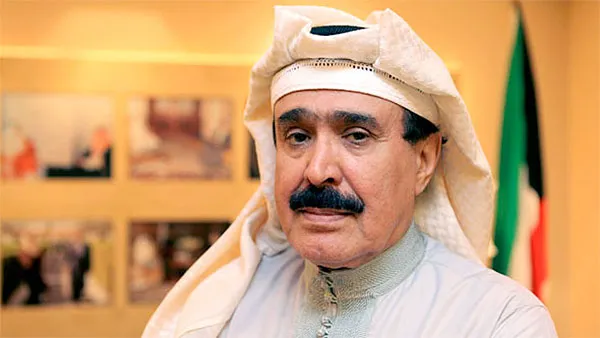07/12/2023
07/12/2023

AS I was watching the proceedings of the Gulf Cooperation Council Summit in Doha the day before yesterday, my memory took me back to the year 1980 when the Arab Summit was held in Amman, Jordan.
On that day, the late Sheikh Jaber Al-Ahmad saw that the situation was unsettling, and sent a piece of paper to the then Saudi Crown Prince the late Fahad bin Abdulaziz, stating that the Gulf states must have a council or an assembly to protect their national security.
The Saudi Crown Prince quickly responded by accepting this idea, and held a meeting in the evening to ponder over it. About a year later, the Gulf Cooperation Council (GCC) emerged at the Gulf Summit in Abu Dhabi.
For 42 years, the GCC has gone through many tests, but it has proven that it is a political, economic, and military force that can withstand storms.
It is true that each country has its own point of view on some agreements, but most of them have been implemented or are on their way to implementation. Nevertheless, the experience is intensifying daily, and these six countries stand united in the face of adversity.
Therefore, the “Peninsula Shield” represented a GCC safeguard. It proved its strength, during the time of the Iraqi invasion of Kuwait, the events in Bahrain, and the Houthi aggression against the Gulf States.
The opening of markets and movement for citizens of the six countries has enhanced trade exchange between them. The monetary union and the central bank are still waiting for agreement on some formalities, but the electricity connection and the Gulf railway plan are proceeding according to what was agreed upon.
The GCC nationals have proven that they are no less capable than the Europeans and Americans in seeking the unity stipulated in the charter approved in 1981.
On the other hand, there have been attempts over the past years to undermine the GCC through either the neighboring countries that have their own agenda, or the world that built its vision on thwarting all forms of Arab attempts for solidarity and unity.
To this day, 42 years later, and with the 44th summit held in the Qatari capital, there is a popular determination to complete the process.
All the storms that passed through the GCC did not destroy its leaders or its people, but rather increased their unity. A testimony of this aspect is the bitter experience in 1990, and how the Kuwaitis felt that hearts were opened to them before homes in all the GCC countries because the Gulf spirit is essentially one, irrespective of how many personalities there are.
In the year 2004, the late King Abdullah bin Abdulaziz proposed the implementation of what was stipulated in the charter regarding the Gulf federation. This undoubtedly requires the completion of some procedures that were delayed, especially since the events that the region witnessed in the past two decades and the current regional situation have begun imposing greater unity of ranks.
That is why we say - It is better late than never. The changes that the world is witnessing are forcing the GCC people to be united.
The poet Al-Muhallab bin Abi Sufra was right when he said, “All of you my sons, when it comes to problems, do not separate. Spears refuse to break when held together, but when separated, they break.”
Do GCC officials realize the importance of their unity?
By Ahmed Al-Jarallah
Editor-in-Chief, the Arab Times


